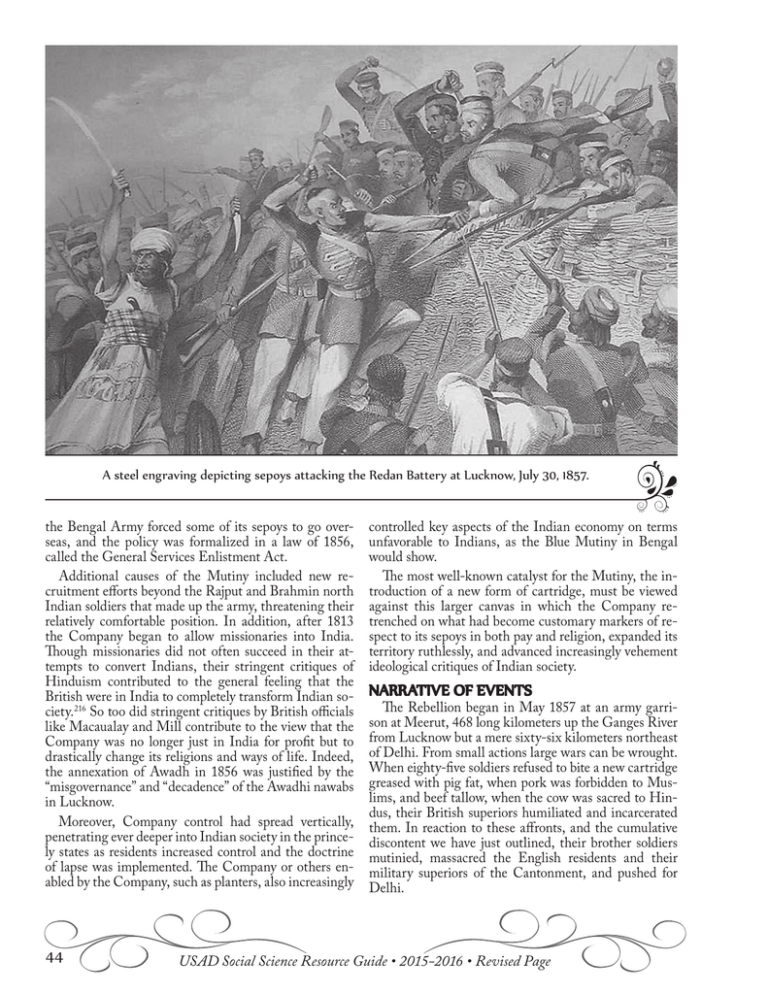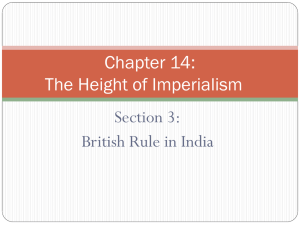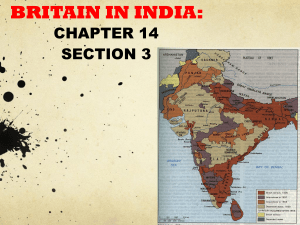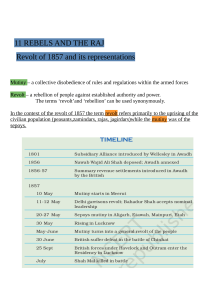a steel engraving depicting sepoys attacking the redan Battery at...
advertisement

A steel engraving depicting sepoys attacking the Redan Battery at Lucknow, July 30, 1857. the Bengal Army forced some of its sepoys to go overseas, and the policy was formalized in a law of 1856, called the General Services Enlistment Act. Additional causes of the Mutiny included new recruitment efforts beyond the Rajput and Brahmin north Indian soldiers that made up the army, threatening their relatively comfortable position. In addition, after 1813 the Company began to allow missionaries into India. Though missionaries did not often succeed in their attempts to convert Indians, their stringent critiques of Hinduism contributed to the general feeling that the British were in India to completely transform Indian society.216 So too did stringent critiques by British officials like Macaualay and Mill contribute to the view that the Company was no longer just in India for profit but to drastically change its religions and ways of life. Indeed, the annexation of Awadh in 1856 was justified by the “misgovernance” and “decadence” of the Awadhi nawabs in Lucknow. Moreover, Company control had spread vertically, penetrating ever deeper into Indian society in the princely states as residents increased control and the doctrine of lapse was implemented. The Company or others enabled by the Company, such as planters, also increasingly 44 controlled key aspects of the Indian economy on terms unfavorable to Indians, as the Blue Mutiny in Bengal would show. The most well-known catalyst for the Mutiny, the introduction of a new form of cartridge, must be viewed against this larger canvas in which the Company retrenched on what had become customary markers of respect to its sepoys in both pay and religion, expanded its territory ruthlessly, and advanced increasingly vehement ideological critiques of Indian society. Narrative of Events The Rebellion began in May 1857 at an army garrison at Meerut, 468 long kilometers up the Ganges River from Lucknow but a mere sixty-six kilometers northeast of Delhi. From small actions large wars can be wrought. When eighty-five soldiers refused to bite a new cartridge greased with pig fat, when pork was forbidden to Muslims, and beef tallow, when the cow was sacred to Hindus, their British superiors humiliated and incarcerated them. In reaction to these affronts, and the cumulative discontent we have just outlined, their brother soldiers mutinied, massacred the English residents and their military superiors of the Cantonment, and pushed for Delhi. USAD Social Science Resource Guide • 2015-2016 • Revised Page











